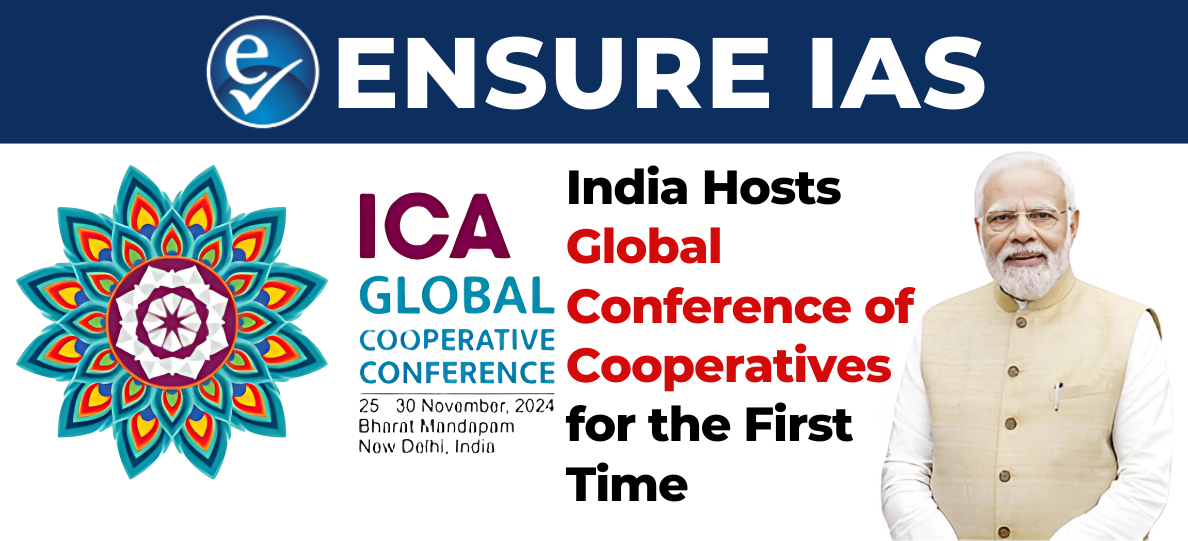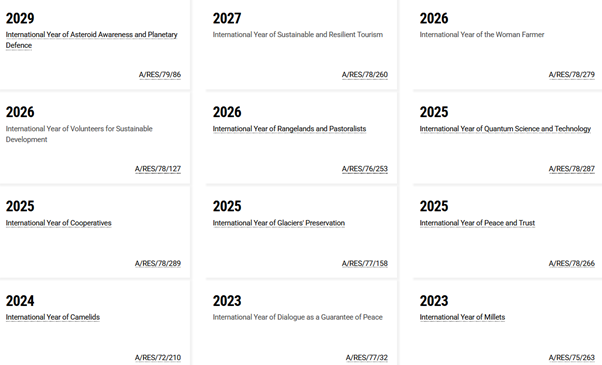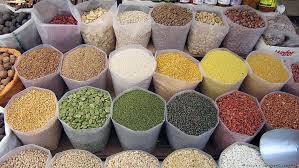- Courses
- GS Full Course 1 Year
- GS Full Course 2 Year
- GS Full Course 3 Year
- GS Full Course Till Selection
- Answer Alpha: Mains 2025 Mentorship
- MEP (Mains Enrichment Programme) Data, Facts
- Essay Target – 150+ Marks
- Online Program
- GS Recorded Course
- Polity
- Geography
- Economy
- Ancient, Medieval and Art & Culture AMAC
- Modern India, Post Independence & World History
- Environment
- Governance
- Science & Technology
- International Relations and Internal Security
- Disaster Management
- Ethics
- NCERT Current Affairs
- Indian Society and Social Issue
- NCERT- Science and Technology
- NCERT - Geography
- NCERT - Ancient History
- NCERT- World History
- NCERT Modern History
- CSAT
- 5 LAYERED ARJUNA Mentorship
- Public Administration Optional
- ABOUT US
- OUR TOPPERS
- TEST SERIES
- FREE STUDY MATERIAL
- VIDEOS
- CONTACT US
India Hosts Global Conference of Cooperatives for the First Time
India Hosts Global Conference of Cooperatives for the First Time
12-01-2025

- In November 2024, Prime Minister Narendra Modi inaugurated the Global Cooperative Conference 2024 at Bharat Mandapam in New Delhi.
- The theme of the conference:"Cooperatives Build Prosperity for All," aligns with the Indian Government’s vision of “Sahkar Se Samriddhi” (Prosperity through Cooperation).
- India is hosting the Global Conference of the International Cooperative Alliance (ICA) for the first time in the 130-year history of the ICA.
- PM Narendra Modi also launched the United Nations’ International Year of Cooperatives 2025 (IYC 2025), which will focus on the theme, “Cooperatives Build a Better World,” and released a commemorative postal stamp.
- The stamp showcases a lotus, symbolizing peace, strength, resilience, and growth, reflecting the cooperative values of sustainability and community development.
- The 5 petals of the lotus represent the 5 elements of nature (Panchatatva), highlighting cooperatives' commitment to environmental, social, and economic sustainability.
- Panchatatva includes earth, water, fire, air, and space.
- The design also incorporates sectors like agriculture, dairy, fisheries, consumer cooperatives, and housing, with a drone symbolizing the role of modern technology in agriculture.
|
Do You Know
|
What are Cooperatives?
- A cooperative (or co-op) is an organization or business that is owned and operated by a group of individuals who share a common interest, goal, or need.
- These individuals, known as members, participate in the cooperative’s activities and decision-making process, typically on a one-member, one-vote basis, regardless of the amount of capital or resources each member contributes.
- The main purpose of a cooperative is to meet the economic, social, or cultural needs of its members, rather than to maximize profits for external shareholders.
- The UN SDGs recognize cooperatives as crucial drivers of sustainable development, particularly in reducing inequality, promoting decent work, and alleviating poverty.
Cooperatives in India
|
Benefits of Cooperatives:
- Democratic Control: Members have a voice in decision-making.
- Economic Participation: Profits are distributed based on usage or contribution, not capital invested.
- Community Focus: Co-ops often aim to benefit local communities by keeping resources and profits within the group.
- Better Services/Prices: By pooling resources, cooperatives often offer better services or prices than for-profit businesses.
Types of Cooperatives in India:
- Agricultural Cooperatives:
- Dairy Cooperatives: Focus on the collective production, processing, and marketing of dairy products (e.g., Amul).
- Farmers’ Cooperatives: Provide services like access to seeds, fertilizers, and agricultural equipment, and help with marketing and processing crops.
- Fishermen Cooperatives: Support fishermen in managing resources and marketing their catch collectively.
- Consumer Cooperatives: These cooperatives are formed to provide goods and services to members at reasonable prices, reducing reliance on middlemen. Examples include consumer stores and fair-price shops.
- Worker Cooperatives: In these cooperatives, workers own and manage the business, sharing profits and decision-making. Examples include small-scale manufacturing cooperatives or artisan co-ops.
- Credit Cooperatives: Cooperative Banks and Credit Societies offer financial services, such as savings accounts, loans, and credit, to members, particularly in rural and underserved areas.
- Housing Cooperatives: These cooperatives help members collectively build or manage housing projects, providing affordable living spaces, especially in urban areas.
Success Stories of Cooperatives in India:
|
Challenges Faced:
- Weak Governance: They are issues of poor management, corruption, and political interference, leading to inefficiency and lack of transparency.
- Limited Access to Credit: Many cooperatives struggle with access to financing, which hinders their ability to expand or improve their operations.
- Competition from Private Sector: Cooperatives often face stiff competition from large private enterprises and multinational corporations, especially in sectors like retail and agriculture.
- Technological Gaps: Many cooperatives, especially in rural areas, lack access to modern technology or are slow to adopt new systems that could improve efficiency.
Way Forward
- Cooperatives in India have proven to be an essential tool for economic empowerment, especially for marginalized groups, and contribute significantly to rural development.
- However, for cooperatives to thrive in the modern economy, governance reforms, better access to technology and credit, and increased member engagement are necessary.
- With the right support and reforms, cooperatives can continue to contribute to inclusive growth and social development in India.
About the International Cooperative Alliance (ICA)
|
|
International Years
|
|
Also Read |
|
| Public Administration Optional | |
| Question Answer Practice For UPSC | |





